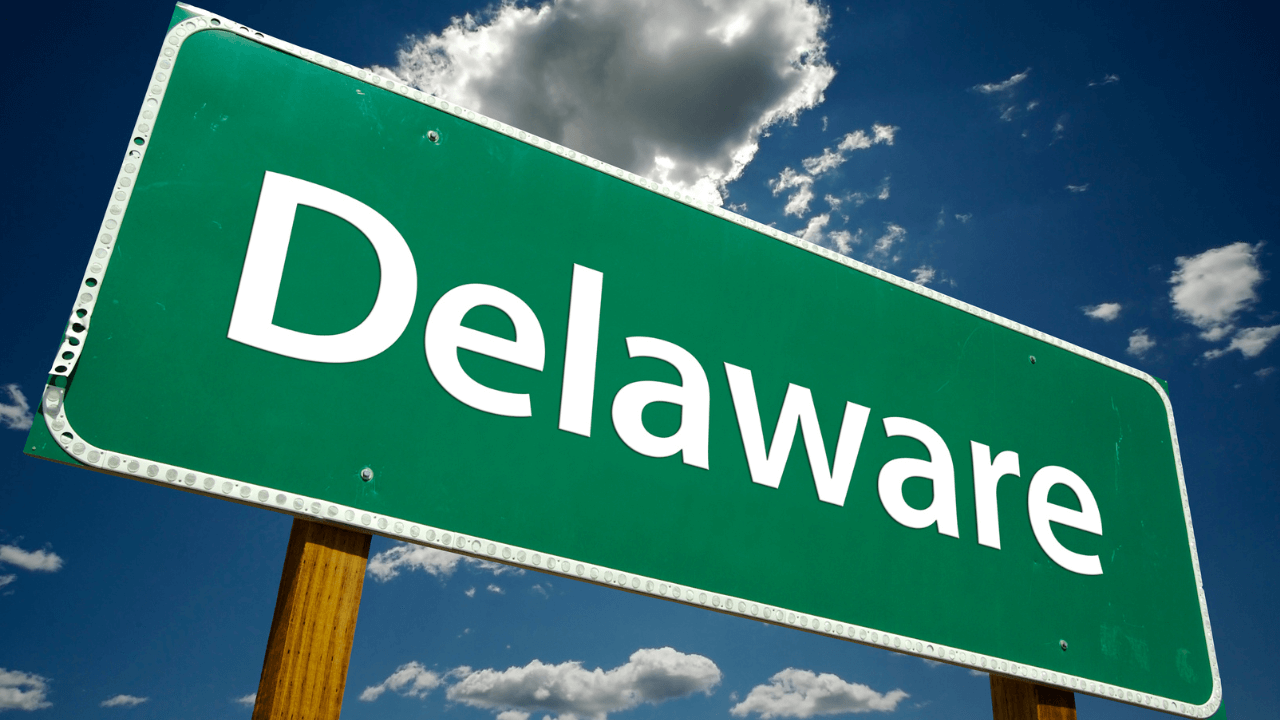
Delaware, the “Incorporation Capital of the World,” attracts countless businesses due to its favourable corporate laws and tax environment.
One crucial aspect of operating a business in Delaware is understanding the Delaware franchise tax. This tax is levied on corporations and limited liability companies (LLCs) doing business within the state.
In this article, we’ll discuss the intricacies of the Delaware franchise tax. We’ll cover essential topics such as its calculation, filing requirements, and potential penalties. We’ll also explore strategies to minimize your tax burden and ensure compliance with Delaware’s tax regulations.
Whether you’re a seasoned business owner or just starting, understanding the Delaware franchise tax is vital for your financial success.
So, let’s dive in and get you up to speed on this important aspect of Delaware business operations.
Need help navigating the complexities of Delaware franchise tax? Consider doola’s comprehensive tax package, designed to streamline your tax filings and ensure compliance.
What Is the Delaware Franchise Tax?
If you’re running a business in Delaware, you’ve probably heard about the Delaware franchise tax.
Despite its name, this tax isn’t limited to franchises. Instead, it’s an annual fee that most Delaware-registered businesses must pay for the privilege of incorporating in the state.
The Delaware franchise tax is not based on your business’s revenue or income but on the value of your company. It’s calculated using one of two methods: the Authorized Shares Method or the Assumed Par Value Capital Method.
The Authorized Shares Method calculates the tax based on the number of shares your company is allowed to issue. The Assumed Par Value Capital Method considers your total gross assets and issued shares.
Businesses can choose the method that results in a lower tax bill.
There are different types of franchise taxes in Delaware.
- Most businesses pay the annual franchise tax. The minimum annual tax for corporations is $175, but it can go up to $200,000 for large companies.
- LLCs and limited partnerships have a flat annual tax.
- The alternative minimum franchise tax ensures corporations pay at least a minimum amount, even if their calculation method shows a lower number.
- The minimum franchise tax is the smallest amount a corporation must pay, no matter how small the company is.
Delaware has strict tax filing requirements. Companies must file their annual report and pay their tax by March 1st for corporations and June 1st for LLCs and partnerships.
Missing the deadline can result in Delaware tax penalties, including a $200 late fee and interest charges.
To avoid penalties and minimize your tax liability, it’s wise to explore Delaware tax minimization strategies. Many businesses opt for the Assumed Par Value Method to lower their tax bill.
Consulting a tax professional is a great way to ensure you’re taking advantage of the best strategies for your business.
Who Is Subject to the Delaware Franchise Tax?
If you’re running a business that’s incorporated in Delaware, you may be subject to the Delaware franchise tax. This tax applies to most entities that are registered with the state, including corporations and LLCs.
Even if your business doesn’t operate physically in Delaware, you’re still required to file and pay the Delaware franchise tax. That’s why it’s essential to understand who must pay and what it means for your business.
The types of businesses subject to the Delaware franchise tax primarily include C corporations, S corporations, and some limited liability companies (LLCs). Notably, some LLCs and partnerships may not be required to pay the franchise tax, but they still have to file an annual report.
A business is considered to be doing business in Delaware if it has legal ties to the state, regardless of whether it operates there physically. This could be anything from being incorporated in Delaware to having a registered agent within the state.
Many companies incorporate in Delaware because of its business-friendly laws, but complying with the state’s tax filing requirements still requires compliance.
Failure to file and pay the Delaware franchise tax on time can lead to penalties, late fees, and even the loss of your business’s good standing with the state. These penalties can quickly add up. Thus, it’s important to stay on top of deadlines and consider Delaware tax minimization strategies.
Suppose you’re unsure about whether your company owes the Delaware business tax or how to file correctly. Working with tax experts like doola can make a big difference.
We’ll ensure that you comply with all the Delaware tax filing requirements and avoid costly Delaware tax penalties.
How Is the Delaware Franchise Tax Calculated?

Understanding how the Delaware franchise tax is calculated can help businesses stay compliant and possibly reduce their tax burden.
Delaware offers two main ways to calculate franchise taxes: the Authorized Shares Method and the Assumed Par Value Capital Method. Businesses are free to choose the method that results in a lower tax amount.
Authorized Shares Method
It is based on the number of shares a company has authorized in its charter. For companies with 5,000 shares or fewer, the tax is a flat $175.
If a company has more than 5,000 shares, the tax increases as the number of shares rises. For example, if a company has one million shares, it could owe around $250,000 in taxes.
This method works best for small companies with fewer shares.
Assumed Par Value Capital Method
This method is more complex and is usually beneficial for companies with a high number of shares but a lower asset base.
To calculate using this method, you divide the company’s gross assets by the number of issued shares, then multiply by the number of authorized shares. This formula gives the assumed par value to which the tax rate is applied. The minimum tax under this method is $400.
Several factors can affect the amount of Delaware franchise tax a business owes:
- First, the number of authorized shares plays a considerable role. A company with more shares will generally owe more.
- The company’s asset base also matters, especially if using the Assumed Par Value method.
- The tax amount is also influenced by the company’s structure, such as whether it’s a large public corporation or a small startup.
Here’s an example to make it more transparent. Let’s say you have a company with 2,000,000 authorized shares and $1 million in assets. Using the Authorized Shares Method, your tax could be in the thousands.
But if you use the Assumed Par Value Capital Method, divide $1 million by the 1,000,000 issued shares, giving an assumed par value of $1. Multiply that by the 2,000,000 authorized shares, and your franchise tax comes to a minimum of $400.
Delaware also has strict tax filing requirements. If you’re unsure how to calculate or minimize your Delaware business tax, it’s a good idea to work with a tax professional.
There are strategies to minimize Delaware franchise tax. For instance, reducing the number of authorized shares or reclassifying assets could lower the tax burden. Companies should work closely with experts to ensure they take advantage of all possible tax minimization strategies.
Delaware’s tax system can seem complex, but understanding the different calculation methods and working with a professional can help you avoid penalties and manage your tax obligations.
Delaware Franchise Tax Filing Requirements
If you’ve formed a business in Delaware, understanding your Delaware franchise tax obligations is essential. Let’s break down the key points you need to know.
The filing deadline for Delaware franchise tax is March 1st every year. You’ll need to submit both your franchise tax and annual report by this date. Missing this deadline can lead to some hefty penalties.
A late filing can result in a $200 late fee plus 1.5% monthly interest on the unpaid balance. This can add up quickly if you’re not careful.
Filing incorrectly can also trigger penalties, so it’s crucial to ensure your information is accurate.
If you’re running short on time, you can request an extension. Delaware allows businesses to apply for a 60-day extension to file their franchise tax. Just make sure you request it before the March 1st deadline.
It’s wise to seek advice from a Delaware tax professional to learn tax minimization strategies and prevent costly errors.
Remember, understanding and complying with the Delaware tax filing requirements can help you avoid unnecessary penalties and keep your business in good standing.
Tips for Minimizing Your Delaware Franchise Tax Liability
Understanding how to reduce your Delaware franchise tax liability is crucial for any business incorporated in Delaware. Here’s how you can minimize the amount you owe.
Strategies for Minimizing Delaware Franchise Tax
- Choose the Right Tax Calculation Method: Companies with large numbers of authorized shares often save using the Assumed Par Value Capital Method. Always calculate taxes using both methods to determine the lower amount.
- Limit the Number of Authorized Shares: The more shares you authorize, the higher the potential franchise tax. Keep shares low at incorporation. Increase the number of shares only when necessary to avoid higher taxes.
- Use Par Value Shares: If you issue shares, assign them a par value (like $0.001 per share) instead of issuing no-par value shares. This can help reduce your tax using the Assumed Par Value Capital Method.
- Reduce Authorized Shares Before Year-End: If your business doesn’t need all its authorized shares, file an amendment to lower the count before the tax year ends. This can decrease your tax for the following year.
Structuring Your Business to Minimize Delaware Franchise Tax Liability
- Choose a Simple Share Structure at Incorporation: Set up your business with fewer authorized shares, especially if you’re a startup. This keeps your franchise tax lower from the start.
- Stay a Private Company: If you’re considering going public, remember that public companies often have higher tax liabilities. Staying private longer allows you to control your tax burden better.
The Benefits of Hiring a Delaware Tax Professional
- Ensure Compliance: A tax professional understands Delaware tax filing requirements, avoiding costly Delaware tax penalties for missed deadlines or incorrect filings.
- Maximize Savings: Experts will analyze your business structure, calculate taxes using both methods and find ways to lower your bill using Delaware tax minimization strategies.
- Reduce Errors: Filing franchise taxes can be complex. A tax professional helps reduce errors and avoid penalties.
- Expert Guidance on Changes: Tax laws can change. Professionals stay updated and ensure your business complies with the latest requirements.
Manage Your Delaware Tax Compliance With doola

To overcome the complexity of tax filings, it is always better to invest in an expert opinion.
doola offers a perfect combination of both along with multiple other perks to transform your tax filing experience and help you embark on a worry-free business journey.
doola’s Total Compliance Package is a bundled offering with comprehensive features for businesses of all sizes and scales. You can leave your worries to our tax experts and also use our extensive bookkeeping solution for payroll management.
Right from business formation to running your business from any part of the world and taxation or compliance — doola walks you through every step of the journey, ensuring you enjoy a stress-free business.
Want to learn more about how we can help you? Schedule a free tax consultation with us today!



